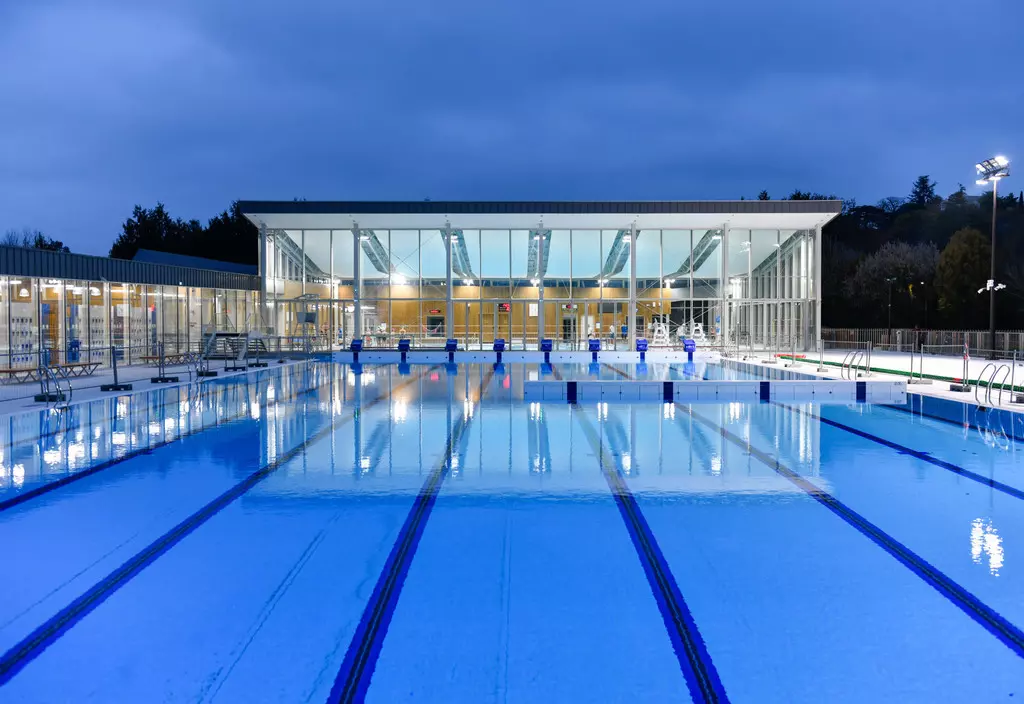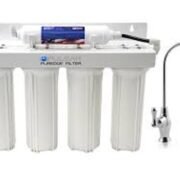Pools have always been a sign of luxury and relaxation, but with the increasing concern about our environmental footprint how much energy we consume (and waste), and conserving water pool owners are looking to find ways that they can keep their pools eco-friendlly. Also cost efficient. Today, advancements in tech means that new pool Technologies are available to help lower this energy consumption and save water while minimising the environmental impact of your property. Let it be an alert to you and tell us 0 comments Home / Design In this article we will find out about the new pool technologies that allow more energy savings and water conservation.
1. Energy-Efficient Pool Pumps
Pool Pump – perhaps the greatest energy buyer in a pool system Single-speed pumps do nothing to match power with the pool and just sit running at full-tilt 24/7, which is not only a gross misallocation of wattage but wastes your money. Still, new technology pool on the market such as variable-speed pumps have helped cut down energy usage for pool owners drastically.
Users can control a variable-speed pump to match the speed of the motor with whatever function needs execution in their pool technologies at that time, whether it be filtration, heating or cleaning cycles. Running at lower speeds when full power isn’t necessary, these pumps are designed to use a fraction of the electricity as little as 90% less than aesthetic models. In addition to their easy maintenance and cost savings, variable-speed pumps are also quieter in use, and frequently have a longer lifespan compared to the single-, or two-speed models currently on many older pools.
2. Solar Pool Heaters
You can see why of all the things you need to pay for simply keeping your pool warm might be one of the most energy-intensive. Old-fashioned electric and gas heaters are pricey to run, in addition they release greenhouse gases. Solar pool heaters are a more sustainable choice and work by using the power of the sun to heat up your pools water.
Solar pool heating systems circulate the water from your swimming pool by means of a series of solar panels where it is warmed and then distributed back to the swimmingpool Whether or not you want to extend the swimming season without breaking the bank using gas and electric, these systems. Although the up-front costs for solar heaters are higher than those of more traditional options, they eventually save you money on your energy bills and cost relatively little in terms of environmental impact.
3. Saltwater Chlorination Systems
Many people are turning to saltwater pools as a more eco-friendly option for traditional chlorine-based pool systems. A saltwater chlorination system replaces the need to add liquid or granulated chlorine by utilizing electrolysis (not bleach) from ordinary salt in your pool water. That way you still wont have to add alot of harsh chemical chlorine treatments, wich means a softer pool on your skin and eyes.
Saltwater systems create chlorine as they need it, which also helps to cut down on waste. In contrast, traditional chlorine pools need to be drained and refilled periodically because of the harsh chemicals used in these types of swimming pools while saltwater allows for a more stable balance which ensures less water waste.
4. Advanced Pool Covers
Using a pool cover is one of the easiest and most effective ways to save water and energy. The most recent innovation in the field of keeping your pool covered when not using it is an automatic cover. They decrease evaporation, which is a major cause of water loss in pools, particularly if you live in an area with hot and dry climate.
Automatic covers also help to keep the heat in, which cuts down on having to reheat and use more energy. Furthermore, they prevent debris from entering the pool – reducing filter cleansing and chemical consumption while offering a complete energy-efficient package.
5. Smart Pool Controls and Automation
Smart technology has been seeing a boom, with smart pool control now arising in the world of pool management. Advance automated pool systems are capable of monitoring things like heaters, lights, filtering as well as salt or chlorine levels from your smart phone. Smart controls are even able to make changes on a local level that can save more energy by adjusting settings based off real-time conditions like changing weather and pool use patterns.
A smart system might, for example, operate the pool pump in non-peak electricity hours or turn down the water temperature when no-one is using it. Pool owners are able to cut costs and conserve energy by efficiently operating their pool through ECOminders, which fine-tunes these operations.
6. LED Pool Lighting
Pool lighting can be expensive to run due, especially if you are still using older incandescent bulbs. LED pool lights are simply a lot more efficient than normal lighting, they have the potential to use as much 80% less energy. They also have a longer life span which means less replacement to take place.
With modern LED systems, there are even more options for personalization and pool owners who upgrade their pool lights to LEDs can control when the light is on (and off), as well customize color and intensity settings with smart controls. Not only less energy is used, but this also creates a more versatile and aesthetic environment when swimming at night.
7. Efficient Pool Filtration Systems
Despite the importance of keeping pool water clean, traditional sand and cartridge filters chuck away irrigation-size quantities. These systems do not operate at an efficient level, and it would be a better option to invest in advanced filtration such DE filters or glass media fillers. Since you need to backwash (clean the filter) less with these systems, it saves more water.
Glass media filters, specifically have risen in popularity because of how long they last and for their water conservation benefits. Instead, they trap dirt and debris in a bed of recycled glass particles (sand) that are far more efficient than traditional media.
8. Water Recycling Systems
Today, new technological advancements have made it possible for pool owners to recapture and re-use the water, which is incredibly important in regions with limited or scarce water supplies. This wastewater can be cleaned and treated using pool water recycling systems, filtration units that recover the old dirty water. So it is free from any contaminants to use again for swimming or even integrated into irrigation.
The existence of these systems directly translates into a need for the pool to be drained and refilled far less frequently, resulting in remarkable water savings over time. Pool owners can also lower their environmental footprint whilst keeping a clean, safe pool through water recycling.
9. Wind and Solar Pool Pumps
In addition to solar heaters, eco-friendly wind and solar powered pool pumps have been gaining in popularity as replacements for conventional electric models. Running off renewable energy, they are a great way for pool owners to reduce their carbon footprint.
Some models of energy efficient pool pumps use wind or solar power as means to circulate water across the new swimming pool for cleaning and filtration purposes. While renewable energy pool pumps initially costs more up front, they provide long-term savings on your electric bill and reduce reliance on fossil fuels.
10. Water-Saving Chemical Additives
Nathan Callahan: A new, organic take on water conservation is the addition of chemical enhancers that prevent evaporation and increase soil moisture. These also create an ultra-thin and invisible film over the water surface that allows less evaporation without any chronic impact on either the pool chemistry or your swimmers.
The technology is most effective in hot climates or during dry periods. Since these additives help to prevent water loss, pool owners will not require frequent re-filling of their pools with dawn and toweling off post-reapplication; which means less energy is being used.
Conclusion
This increased emphasis on sustainable building and environmental responsibility has given birth to latest pool technologies that conserve energy, water. These technologies, which range from variable-speed pumps and solar heaters to smart pool controls and advanced filtration systems, allow pools owners to reduce their ecological footprint while also saving on the high costs of traditional maintenance.
As these technologies develop, sustainable pool maintenance is becoming increasingly attainable for both home and business owners. By implementing an optimal mix of energy-efficient and water-conserving solutions, swimming pool owners can convert their pools into long-lasting eco-friendly and economical sanctuaries.








